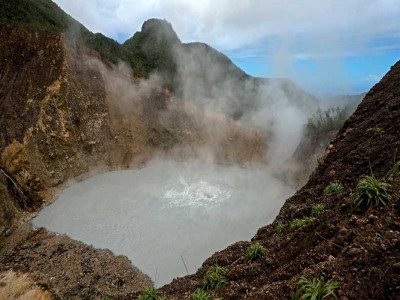
The Great Exodus of the 1819-1826
Burma (Myanmar) and Manipur have fought numerous wars and inflicted several invasions on each other throughout history. However, the "ChahiTaretKhuntakpa" or Seven Years Devastation spanning from 1819 to 1826 is one that cannot be easily forgotten.
The brief
Burmese invaded Manipur several times, but the most notable was the one in 1819 during the reign of Maharaja Marjit Singh, under the great Burmese general Mingimala Bandula. The invasion which lasted seven years from 1819 to 1826 led to widespread chaos, violence, and loss of life. Villages were attacked by raiders, huts set on fire, thousands of villagers killed, and the surviving adults taken as prisoners. Raja Marjit, who fled to Cachar, cooperated with the British troops, expelled the Burmese from Manipur, and made Ningthee River the Eastern boundary of Manipur. At the conclusion of The Yandabo Peace Treaty, after the end of the Anglo-Burmese war in February 1826, Gambhir Singh was recognized as the Maharaj of Manipur.
The backdrop of 'ChahiTaretKhuntakpa'
There were various factors responsible for the defeat of Manipur at the hands of Burma, then known by the name of Ava by the locals. Among the internal factors responsible were a frequent war for succession to the throne, conversion to Hinduism (which led to the neglect of the military aspect of the kingdom), and the princess, the queens, the Brahmins, and nobility all indulging in court politics. However, the root cause of the Burmese invasion was King Marjit's decision not to attend the coronation ceremony of the new Ava king, even though he had accepted to be a vassal of Ava to get help from them to secure the throne of Manipur from his brother. This was taken as an act of rebellion by the then imperialist Burma. Following their invasion, the Burmese installed one puppet king after another for very short periods during the occupation. While inflicting large-scale plunder and torture, some that left indelible marks like when one smelled of burning chilies, they used to say, 'Awa lallakle' (Awa war has come) such was the range brutality.
When Lord Hasting became Governor-General, he dropped the non-interference policy of his predecessors. And with Burma advancing towards Cachar, after occupying Assam and Manipur, the British had to join hands with the fleeing Rajas. The British allied with Gambhir Singh and established a force called Manipuri Levy, which was trained by Captain Grant and Lt. R.B. Pemberton. It was this force that ultimately dislodged the Burmese force from Manipur. The expedition that began in Sylhet on 17 May 1825 ended in February 1826, when Gambhir Singh completed the conquest of Manipur extending its boundary even beyond the Ningthee River; thus, ending the seven years of devastation. The First Anglo-Burmese war was brought to an end with the signing of the Treaty of Yandabo, 1826. About half a million people are believed to be killed during this period.
The displaced of the war
Majority of the native Manipuri who fled the occupation settled in Assam, Tripura, and Bangladesh. Those who were taken as war captives are now settled in various parts of Burma present-day Myanmar. In Assam, the Manipuri settled as far as Hojai in Nagaon district, while in Cachar they settled all along the Barak river from Jiri Ghat up to Badarpur in Karimganj. During the invasion, King Chourajit Singh along with two younger brothers, Marjit Singh and Gambhir Singh also had taken refuge in Sylhet. A hoard of Manipuri subjects followed them whose descendants now live in town and its suburbs, such Kamalganj, Sreemangal, Kulaura, and Barlekhathanas. The Manipuri already had a relationship with Tripura in the ancient age with many princesses from Manipur becoming Queens in the Tripura Kingdom. So, many during the "ChahiTaretKhuntakpa" also fled and settled in Tripura.
The descendants of Manipuri, who settled in Assam, Tripura, Bangladesh, and many other states such as Mizoram, now called it their home. They continue to be indigenous but have welcomingly accepted local culture and are part of the diaspora of the region. They have remained rooted in their rich culture, tradition and have amicably endorsed their rich heritage across the region and abroad with aplomb.
However,
there were times when Manipuris of Manipur itself were indifferent towards them,
and some even considered them as traitors. Things have changed and there is
wide acceptance of the choices they made, which was based on the safety of the
family and loved ones during a period of political instability.
Disclaimer: The opinions expressed in this article are those of the author's. They do not purport to reflect the opinions or views of The Critical Script or its editor.

Newsletter!!!
Subscribe to our weekly Newsletter and stay tuned.

















Related Comments